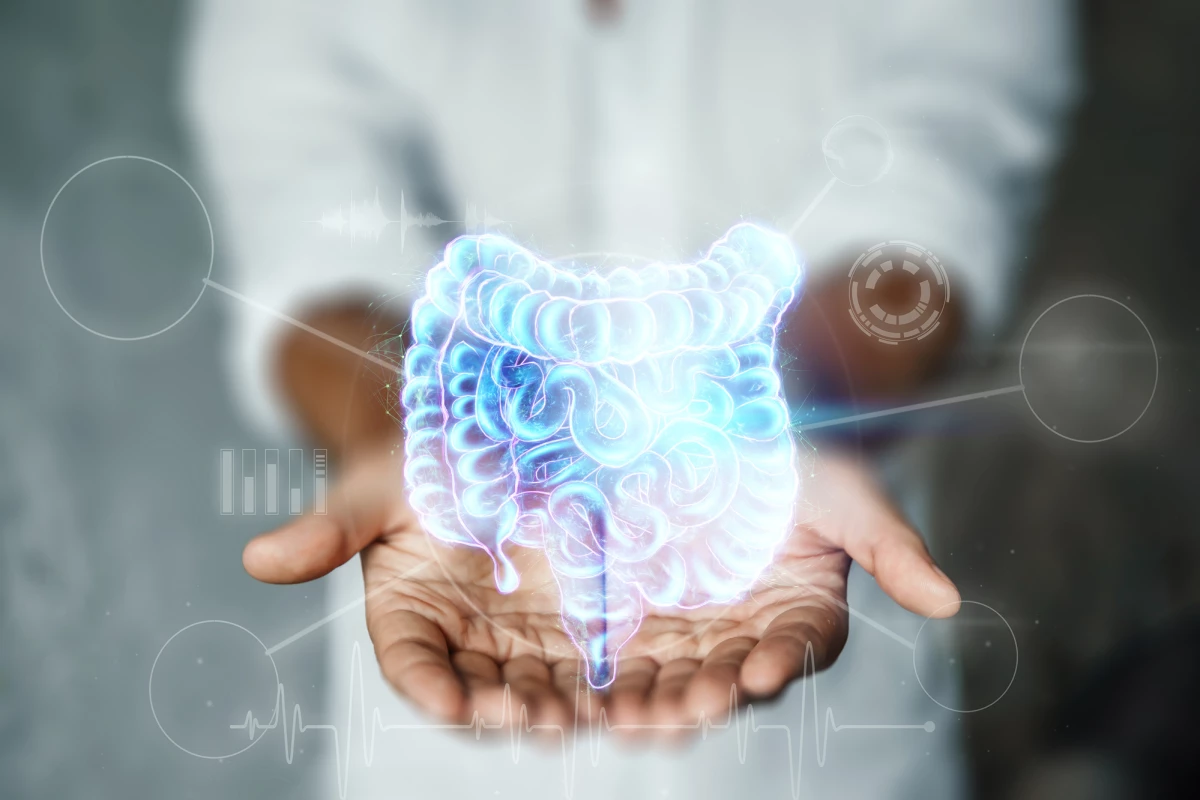Researchers have improved upon existing organoids, creating a miniature 3D colon complete with immune cells that could lead to the development of personalized treatments for colon-related diseases such as inflammatory bowel disease and cancer.
Research into healthy organs and their disease states is crucial to our understanding of both and the development of new and effective treatments. Miniature 3D versions of organs, or organoids, can be used to study disease mechanisms in tissue closely resembling the real thing. However, many organoids are missing a crucial component that most organs have IRL: connection to an immune system.
Now, researchers at the Medical University of South Carolina (MUSC) Hollings Cancer Center, in collaboration with the Cincinnati Children’s Hospital Medical Center, have addressed that issue by developing a colon organoid complete with immune cells.
“We think that this new model is significant because most gastrointestinal diseases involve the immune system and inflammation,” said Jorge Múnera, lead author of the study.
Diverse populations of immune cells populate the gastrointestinal tract. Most intestinal diseases, particularly inflammatory bowel diseases (IBDs), involve the immune system, which makes it important to have access to these cells when conducting research.
The researchers directed the differentiation of human pluripotent stem cells (hPSCs) to generate human colonic organoids. The cells self-organized into layers similar to natural gut tissue and co-developed a diverse population of immune cells, including hemogenic endothelium-like cells that generated functional macrophages. Macrophages are specialized immune cells that sense and respond to pathogens in addition to initiating, maintaining, and resolving inflammation.
“Importantly, these immune cells are nearly identical to those found in the human body, where they are able to detect disease-causing bacteria and remove them,” said James Wells, a corresponding author of the study. “This is an important step for research aimed at identifying future therapies for IBD and other diseases impacting the gastrointestinal tract.”
The researchers say their mini colon more closely resembles the human colon.
“They [the organoids] contain not only the lining of the colon but also the supporting cells and even some immune cells that grow along with the rest of this tissue,” Múnera said. “We have made a more complete human organoid system that we can use to model inflammation in the colon.”
With more development, the researchers think their novel organoid could be used to help personalize treatments for diseases of the colon. These organoids could be generated using the blood of a patient with early-onset IBD, for example, and used to test whether a treatment would be effective before administering it.
The study was published in the journal Cell Stem Cell.
Source: MUSC





